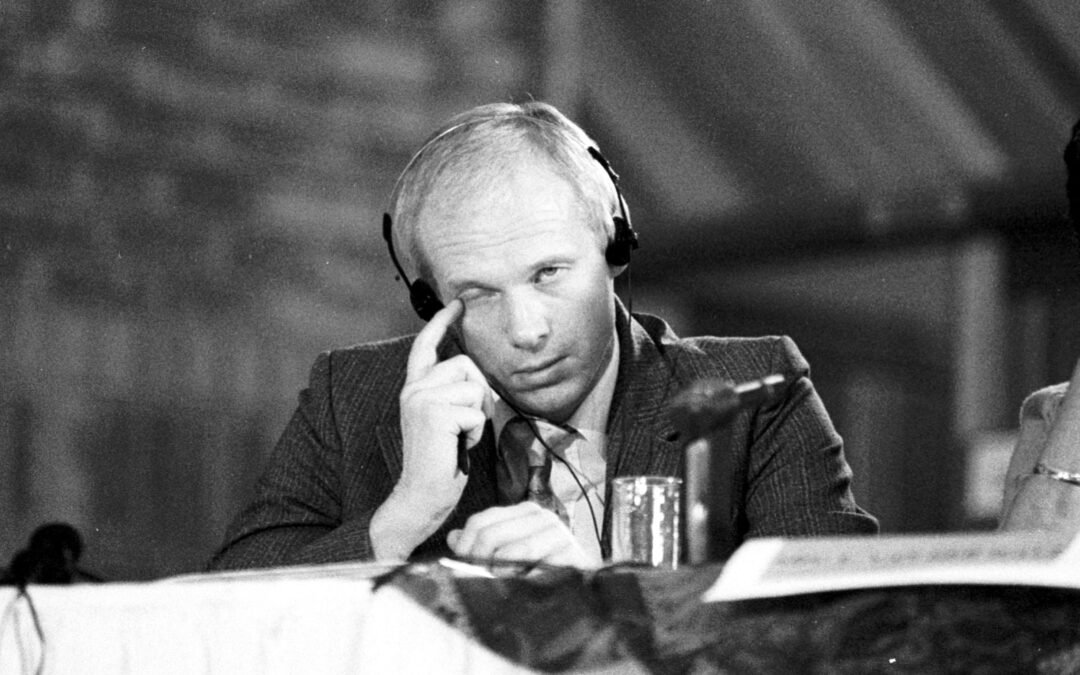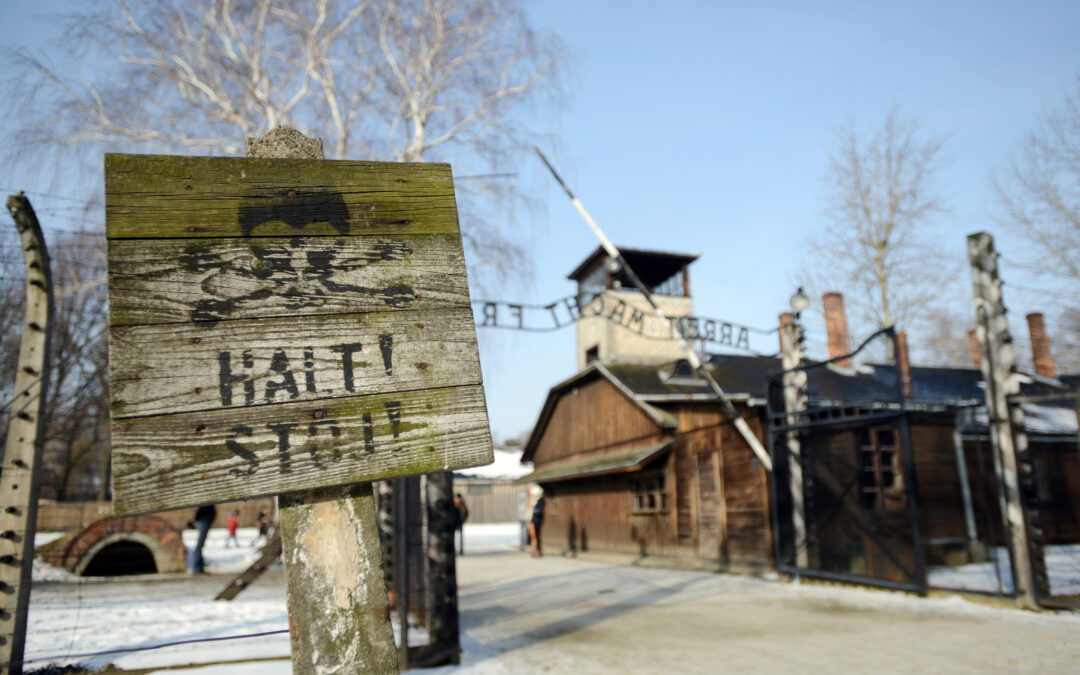Keep our news free from ads and paywalls by making a donation to support our work!

Notes from Poland is run by a small editorial team and is published by an independent, non-profit foundation that is funded through donations from our readers. We cannot do what we do without your support.
Janusz Waluś, a Polish white nationalist who assassinated black anti-apartheid leader Chris Hani in 1993 with the aim of sparking a race war, has arrived in Poland after being deported by South Africa.
The 71-year-old, who served almost 30 years in prison before being released on parole in 2022, was pictured landing at Warsaw’s Chopin Airport on Saturday morning after being put on a flight from South Africa on Friday.
Gazeta Wyborcza, a leading Polish daily, reports that Waluś was welcomed by a group of neo-Nazis from an extremist group called Bad Company and that he appeared in the arrivals hall accompanied by Grzegorz Braun, one of the leaders of the far-right Confederation (Konfederacja) political party.
Witamy w domu bracie!
Janusz Waluś już na lotnisku Chopina w Warszawie.Waluś za zabicie odpowiedzialnego za liczne akcje terrorystyczne lidera Południowoafrykańskiej Partii Komunistycznej Chrisa Haniego, skazany został na karę śmierci, zmienioną później na dożywocie. pic.twitter.com/kYmmikGyOy
— Karol Dolina (@dolokar39) December 7, 2024
During his time in prison, Waluś became a hero for some Polish nationalists, who praise him for killing a prominent communist (Hani was the leader of the South African Communist Party). His image has regularly been displayed on banners at football matches.
On Friday, Braun – who is a member of the European Parliament and is facing prosecution for attacking a Jewish ceremony in Poland’s parliament – published a video promoting a fundraising action to financially support Waluś on his return to Poland.
Last week, Kanal Zero, a Polish online broadcaster with 1.4 million subscribers on YouTube, announced that its founder and star presenter, Krzysztof Stanowski, would broadcast an interview with Waluś on 10 December.
That led to criticism from some fellow Polish journalists and activists, with one group, Akcja Demokracja, calling on advertisers to boycott the channel.
This week also saw controversy over who would pay for Waluś’s return to Poland after South Africa’s interior minister, Leon Schreiber, revealed that “the Polish embassy will cover the costs”.
Speaking to news website Onet, Polish deputy foreign minister Andrzej Szejna noted that, by law, Waluś is now an “ordinary” Polish citizen.
“He has served his sentence. He has the right to be in the country, and we have an obligation to help our citizens,” said Szejna. However, he added that, “as for this gentleman’s past, we condemn it”.
Jak Janusz Waluś dostanie się do Polski. Zamieszanie wokół transportu byłego więźnia https://t.co/6fvaJ2ztRX
— Węglarczyk 🇵🇱🇪🇺🇮🇱🇺🇸🇺🇦 (@bweglarczyk) December 6, 2024
Waluś moved to South Africa from communist-ruled Poland in 1981 and gradually became involved in political organisations that supported the apartheid regime, including the neo-Nazi Afrikaner Resistance Movement.
On 10 April 1993, he drove to the house in Johannesburg belonging to Hani, who had fought as part of the resistance to apartheid before supporting the end of armed struggle and a negotiated dismantlement of the system of racial segregation.
As Hani returned home that day, Waluś shot him four times and fled. He was later arrested and convicted, along with the instigator of the assassination, politician Clive Derby-Lewis, who was released on medical parole in 2015 and died from lung cancer the following year.
Hani’s widow, Limpho, and the South African Communist Party have this week expressed disappointment at the way Waluś’s deportation was handled, saying they were only informed about it at the last minute, report South African media. They have also called for a new inquest into Hani’s death.
A Polish white nationalist who murdered a black anti-apartheid leader in the hope of provoking a race war was today freed by South Africa's highest court.
Janusz Waluś has become a hero to radical nationalists in Poland, who display his image on banners https://t.co/iCdhQaIlCC
— Notes from Poland 🇵🇱 (@notesfrompoland) November 21, 2022

Notes from Poland is run by a small editorial team and published by an independent, non-profit foundation that is funded through donations from our readers. We cannot do what we do without your support.
Main image credit: PIOTR JANOWSKI / Agencja Wyborcza.pl

Daniel Tilles is editor-in-chief of Notes from Poland. He has written on Polish affairs for a wide range of publications, including Foreign Policy, POLITICO Europe, EUobserver and Dziennik Gazeta Prawna.



















